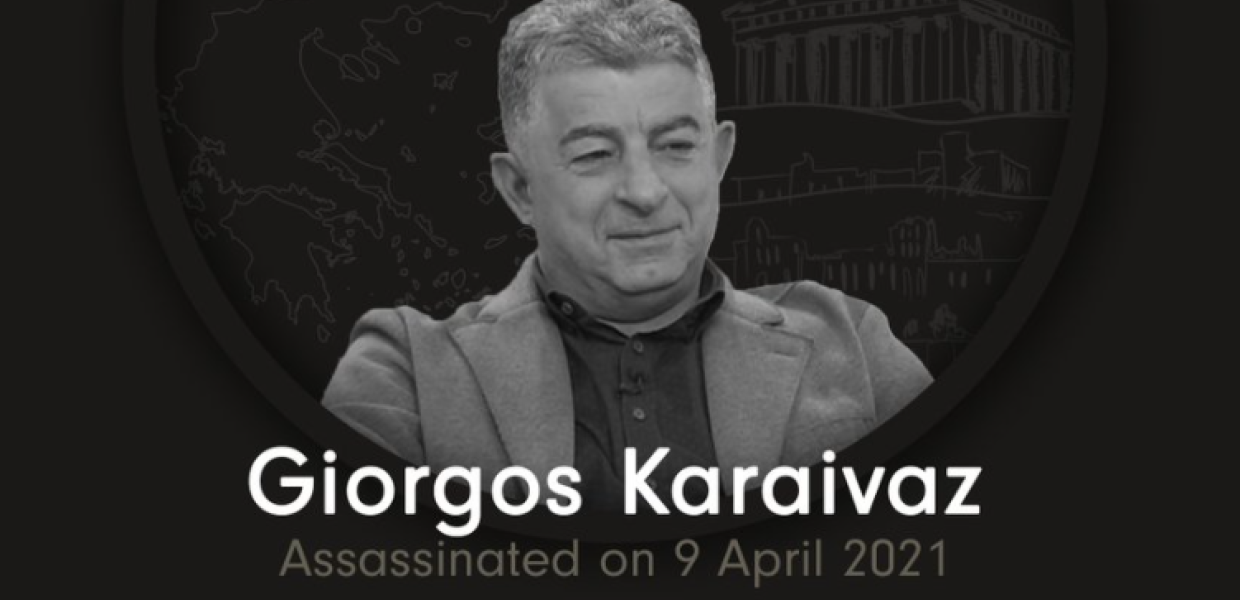
His wife’s tribute to Giorgos Karaivaz:
“Three years ago, around this time, you would return home, brimming with joy. Now, an oppressive silence and a mute sadness envelop our lives.
Outside, the sun may blaze, but here, a chill has seized my soul. I long to awaken from this nightmare, to hear your footsteps outside our door, the sound of the key turning in the lock, to turn my head and see you, to tell you, ‘You’re here, my Giorgos, how was your day? Everything okay, my love?’ Instead, I find myself preparing to attend the memorial prayer marking three years since we lost you. May you dwell in the light, soar freely, and watch over us. I love you.”
The unresolved case and lingering questions
Among the myriad challenges that can impede a journalist’s work, there stands one definitive barrier: death.
In Greece, Giorgos Karaivaz, a journalist known for his investigative crime reporting, met his untimely demise in a brazen daylight assassination right outside his home. The government, in response, assured the public that the Greek police would promptly unravel the case and bring the perpetrators to justice. However, contrary to these promises, the investigation into Karaivaz’s murder remains markedly slow or seemingly stagnant, even 22 months post-incident.
In the below podcast episode, we engaged in conversations with a diverse group deeply connected to the case and its broader implications.
We spoke with Statha Alexandropoulou Karaivaz, the widow of the murdered journalist, providing a personal and poignant perspective on the tragedy.
Panos Sombolos, one of the most seasoned police reporters, offered insights from his extensive experience in covering crime and justice.
Journalist Babis Polychroniadis, who was present at the Greek Mafia trial, shared observations from the courtroom that contextualise the dangers journalists face.
Pavol Szalai, the head of Reporters Without Borders in the European Union and the Balkans, provided an international viewpoint on press freedom and safety.
MEP Costas Arvanitis and Maria Antoniadou, president of the Journalists’ Union of the Athens Daily Newspapers (ESIEA), contributed their perspectives on the legislative and professional dimensions of the issue, respectively.
______________________________________________
Are you seeking news from Greece presented from a progressive, non-mainstream perspective? Subscribe monthly or annually to support TPP International in delivering independent reporting in English. Don’t let Greek progressive voices fade.
Make sure to reference “TPP International” and your order number as the reason for payment.